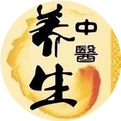Traditional Chinese Medicine (TCM) posits that the five organs house the five spirits, and eating is akin to offering sacrifices to our “five organ spirits”.
But do you know why the “five organs” are referred to as “temples”? The concept of the five organs housing spirits may seem esoteric, yet it is grounded in evidence. The “Ling Shu” states: “When the blood and qi are harmonious, the nutritive and defensive qi are connected, the five organs are complete, the spirit resides in the heart, and the soul and po are fully present, one becomes a person.”
This means that only when both form and spirit are present can a person be considered healthy and vibrant.
Here, form refers to the five organs: heart (xin), liver (gan), lung (fei), spleen (pi), and kidney (shen); while spirit refers to the psychological aspects housed within these organs: shen (神), hun (魂), po (魄), yi (意), and zhi (志), collectively known as the “five emotions” in TCM.
The “five emotions” are not mere abstract concepts; they have a material basis, which is essence (jing), stored within the five organs.

What is the Theory of the Five Organs Housing Spirits?
TCM holds that “the heart is the sovereign organ, from which the spirit emerges.” The heart has the primary function of governing mental activities, and modern medicine often treats brain diseases by addressing heart issues. However, TCM also speaks of the “five spirits of the organs,” asserting that mental activities are governed by the five organs: “the heart houses the shen, the lung houses the po, the liver houses the hun, the spleen houses the yi, and the kidney houses the zhi,” collectively known as the “five organs housing spirits.” What do these spirits represent, and how are they related to the five organs?
<br/>
The five spirits: hun, shen, yi, po, and zhi can be understood simply as follows: shen primarily refers to the unpredictable nature of mental activities, hun refers to the “subconscious” of a person, po refers to sensory perceptions such as temperature and pain, yi refers to thought processes and inspiration, and zhi refers to memory and willpower. All these are related to brain function. The five spirits are not absolutely independent; they are closely interconnected, making it difficult to distinguish them clearly, and they collectively maintain the normal state of the human spirit.
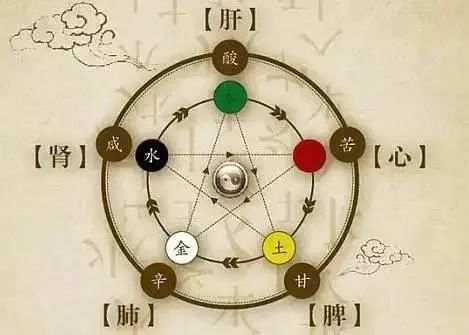
(1) Shen and Heart:
In TCM, the term shen is quite broad, encompassing all mental and psychological activities. Sensory perception, cognitive processes, memory, and the generation of thoughts are attributed to the heart, referred to as “the heart houses the shen.” This is the foundation and premise for our perception, thought, will, and emotions. Thus, the function of the heart permeates the other four spirits, serving as their foundation. In this context, the heart’s spirit is a governing force rather than a specific entity. However, when the five spirits are considered together, shen refers to the mysterious and unpredictable nature of human spirit and thought. When the heart’s spirit is clear, all our mental activities function normally and responsively. Conversely, if the heart’s spirit is unclear, as seen in patients with mental illness or coma, mental activity ceases to exist, let alone change.
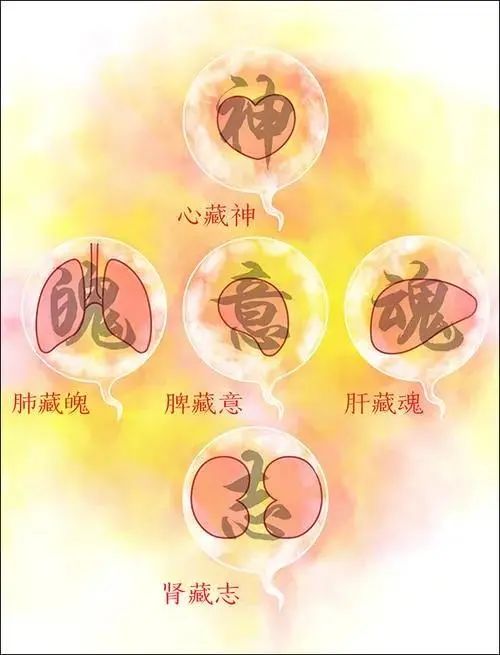
(2) Hun and Liver:
We often hear phrases like “the hun is not at home,” “the hun is entangled in dreams,” and “frightened to the point of losing the po.” Here, hun primarily refers to attention, subconscious, and judgment, and is related to sleep. TCM believes that “the liver stores blood,” and the liver maintains our mental comfort, being regarded as “the general organ, from which strategies emerge.” When liver blood is deficient, the spirit is not nourished, leading to issues such as difficulty concentrating, vivid dreams, talking in one’s sleep, or even sleepwalking.
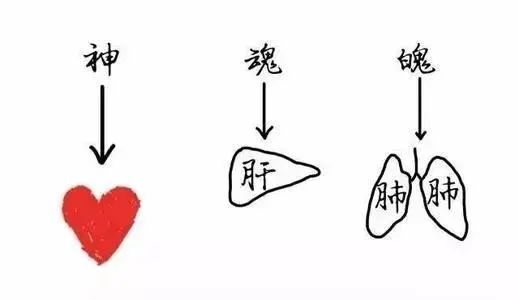
(3) Po and Lung:
Generally, the sensory functions such as hearing (ears), vision (eyes), and the sensations of temperature and pain (skin) are considered to be governed by the po. TCM holds that the lung governs qi, assists the heart in circulating blood, and oversees the skin and hair. When qi and blood are sufficient and distributed throughout the body, sensory functions operate normally.
<br/>
(4) Yi and Spleen:
Yi refers to “thinking, contemplation, intention, and inspiration.” TCM believes that the spleen governs the emotions related to “thinking,” and only through thought can intention and inspiration arise. The spleen is the master of the digestive system and the foundation of postnatal essence, which is the basis for generating qi and blood. Only when the spleen and stomach function well can there be sufficient qi and blood to nourish the brain, leading to clear thinking. If the spleen and stomach are weak, and qi and blood production is insufficient, the brain will lack nourishment, and “yi” will not be effective.
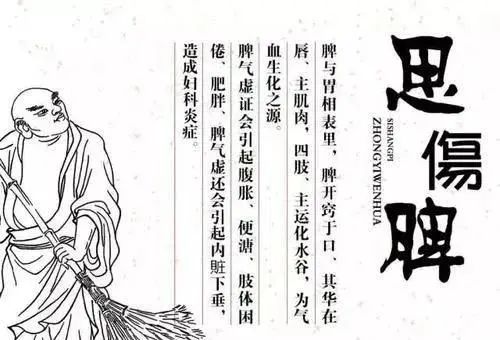
(5) Zhi and Kidney:
Zhi refers to memory and willpower. The brain is the anatomical basis for all emotional activities, and as animals evolved, they became increasingly intelligent with larger brain capacities. TCM believes that the fullness of the brain marrow depends on the amount of kidney essence. The kidney governs essence storage, and kidney essence can transform into brain marrow. When kidney essence is abundant, the brain marrow is full; when kidney essence is deficient, the marrow sea is insufficient. As we age and kidney essence diminishes, the brain gradually shrinks, leading to a decline in memory. Therefore, tonifying kidney essence and replenishing brain marrow is also an important method for treating brain diseases.
In summary, TCM views the five organs as a systematic whole. The activities of the spirit, hun, shen, yi, po, and zhi are distributed among the five organs, with the heart as the leader. The function of the brain is closely related to the heart, but also to the five organs. For abnormal mental awareness, thought, and emotional activities, one should not simply attribute it to heart and brain disorders, but should consider treatment from the perspective of the five organs.
The above is for reference only; please consult a physician for guidance in treatment.
Reviewed by: Pharmacist Lu
Edited by: Sanqi Xiaomei
Return to the main pageReply with any keywords
to view the corresponding articles
| Back Diagnosis | Face Diagnosis | Tongue Diagnosis | Sweat Diagnosis | Eye Diagnosis | Differentiation |
| Gua Sha | Cupping | Moxibustion | Acupressure | Foot Therapy | Meditation |
| Tapping | Stretching | Qingjin | Nails | Acne | Stones |
| Liver Cirrhosis | Home Feng Shui | Sanfu Paste | Vinegar-Pickled Eggs |
| Clever Tricks | Tests | Winter Disease Treated in Summer | Self-Healing |

